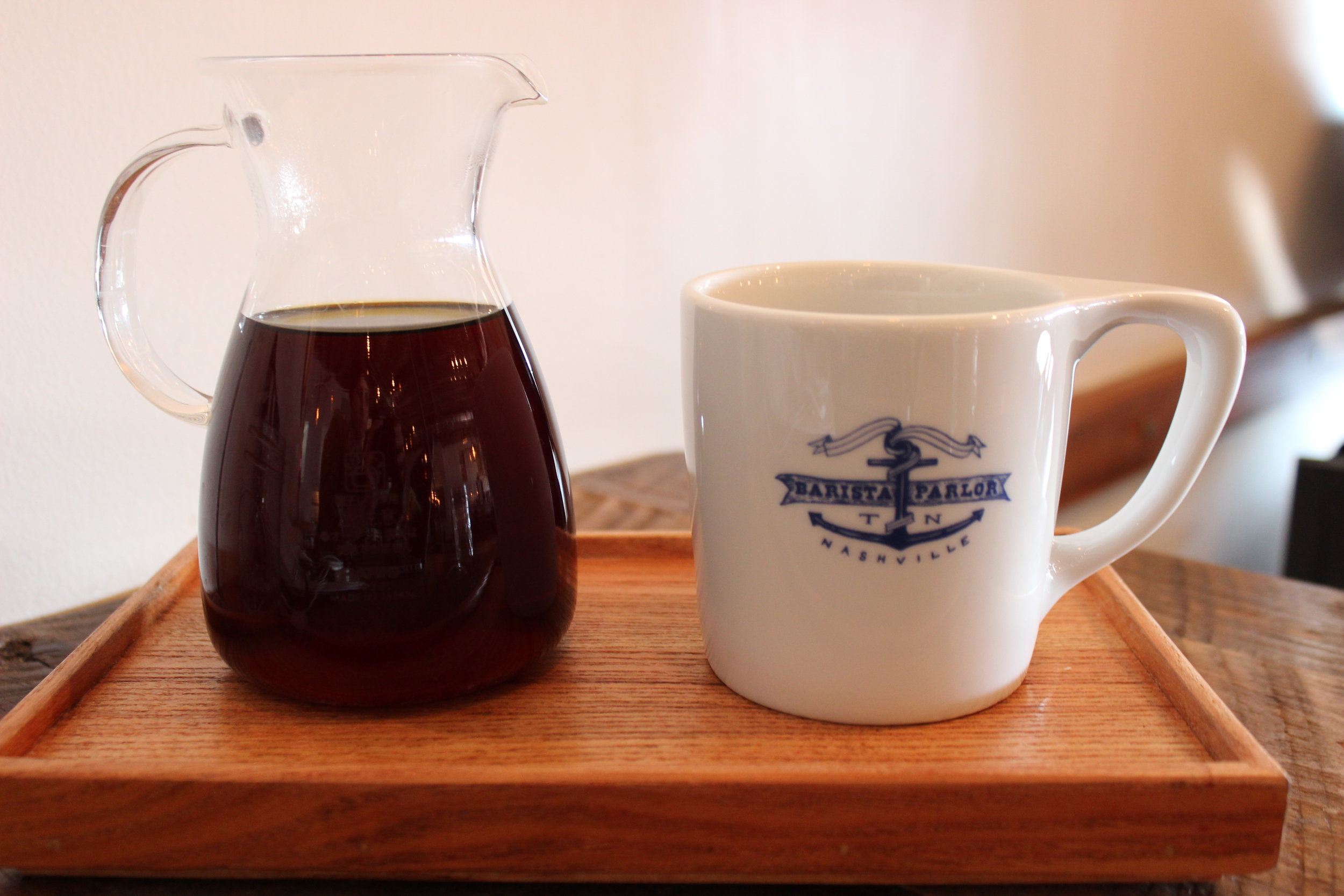 A few weeks ago, a friend of mine said something profound. Over a particularly delicious cup of bold espresso, she made a point about what most people think about writers. Very matter of factly, she set her coffee on the table, swallowed her last sip, and said, "They think we spend all of our time drinking coffee, or frantically putting words on paper that have been sent down from on High.
A few weeks ago, a friend of mine said something profound. Over a particularly delicious cup of bold espresso, she made a point about what most people think about writers. Very matter of factly, she set her coffee on the table, swallowed her last sip, and said, "They think we spend all of our time drinking coffee, or frantically putting words on paper that have been sent down from on High.
"Either way," she said, "no one really thinks it's work."
She's right. And even though we felt guilty for drinking coffee while talking about how other people think writers just sit around all day and drink coffee, her point is valid. Writing affords the luxury of an extra cup of coffee every now and then, but this work is not just putting God-given words on paper. Most of the time it's just really. hard. work. Blank page after blank page after $50 invoice after $50 invoice. Sometimes it feels grueling. Rarely does it feel easy.
We finished our coffee and went back to our respective offices (our homes) to get back to work. Because yes, although I'm slightly more hyped up on caffeine than I was as a teacher, I'm also constantly aware of the real, sometimes daunting thought that there's a deadline looming, and there's only one person in this business who can meet it.
As I come up on my one year writer-versary, I know that this work is work. And lets be honest, coffee isn't the only tool I need to get the job done. Just like real-estate appraisers, teachers, or private investigators—there are tools that make this job a whole heck of a lot more efficient and enjoyable and productive. And over the last year, I've managed to accumulate a few items that now I can't imagine working without.
Here are what i think have been my top five tools as a freelance writer. You ready?
1. Business cards that wow— $70.00+
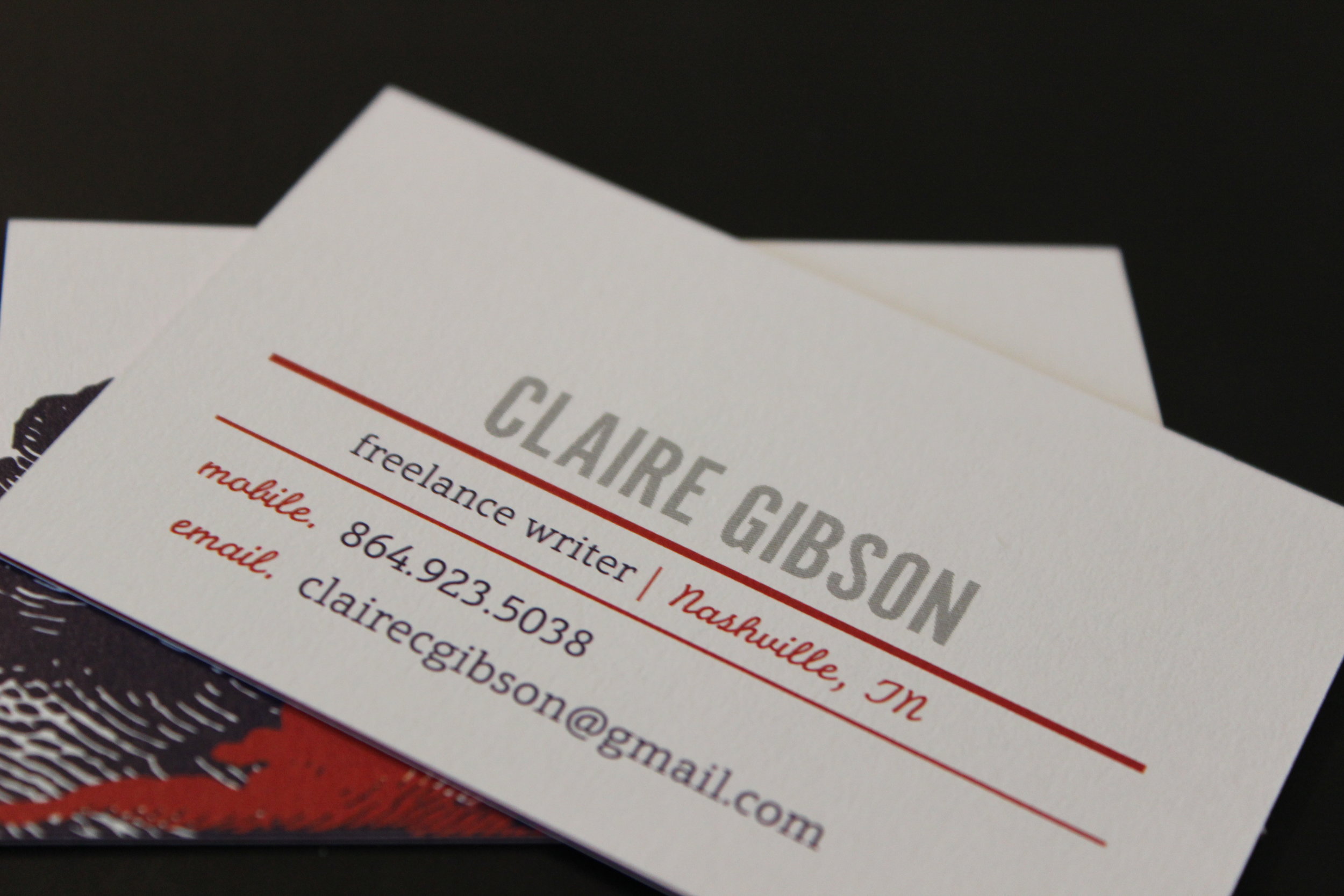
This was the first "tool" I bought as a writer, and let me be honest. They made me feel like a tool, too. Still, I don't think the era of business cards is over—even though we live in a world where I can find you at the drop of a name in a google search bar. Sure, I might be wearing jeans at 10 am on a Tuesday, but handing someone something official like a business card says, yes, even though I am not in an office, I take myself seriously. I'm a huge fan of Moo, an online tool to help you design your own card. Make sure you've got what you want on the card—website, twitter handle, phone number, e-mail, SSN—whatever. You never know when handing that card to the right person might be the ticket to a new relationship or friendship or story or idea.
Plus, once you finally start calling yourself a "writer" to other people, that's when it will start to feel real, and if you're going to have business cards, they might as well be awesome. I mean, check out this one of a vintage typewriter. Cool, right?
2. Website to catalogue your work — $175 yearly There's nothing more important and more simple than starting your own website. As crazy as I felt the day I bought clairegibson.com, I've never regretted it. No one was ever going to keep up with the bylines for me—so that's part of the job. Plus, I started realizing that all that hard work I poured into each story shouldn't just be lost when the link dies (and if you write for the Tennessean, that link is going to die in about 2 weeks time).
I use Wordpress. It's easy. It's relatively inexpensive. I purchased the $99 upgrade, plus a $75 premium theme (that I eventually purchased for this blog, too), and presto. You're in business. If I were choosing again today, I'd pick something like this premium theme, or this free theme. Here's the one I'm using.)
3. Computer you trust— $1400+
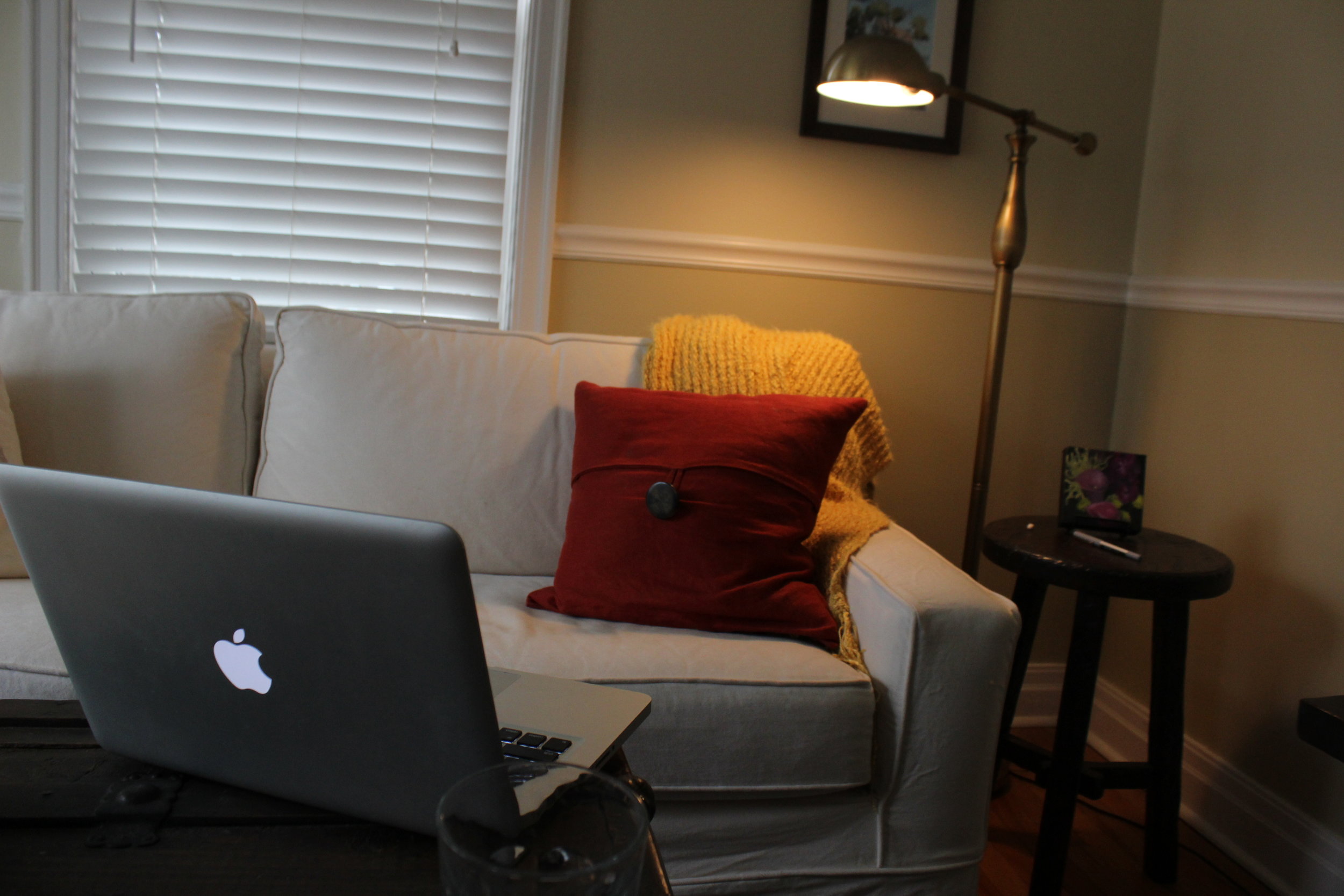
I mean, duh. This was a big deal for me though, because I hadn't purchased a computer since my freshman year in college. So when the guy in the big white store told me what it was going to run me, I couldn't help but let my jaw drop. Still, my husband bought a PC for work that cost him something like $300, so you don't have to go the expensive route.
4. Livescribe pen to save on transcribing everything — $150 + refills
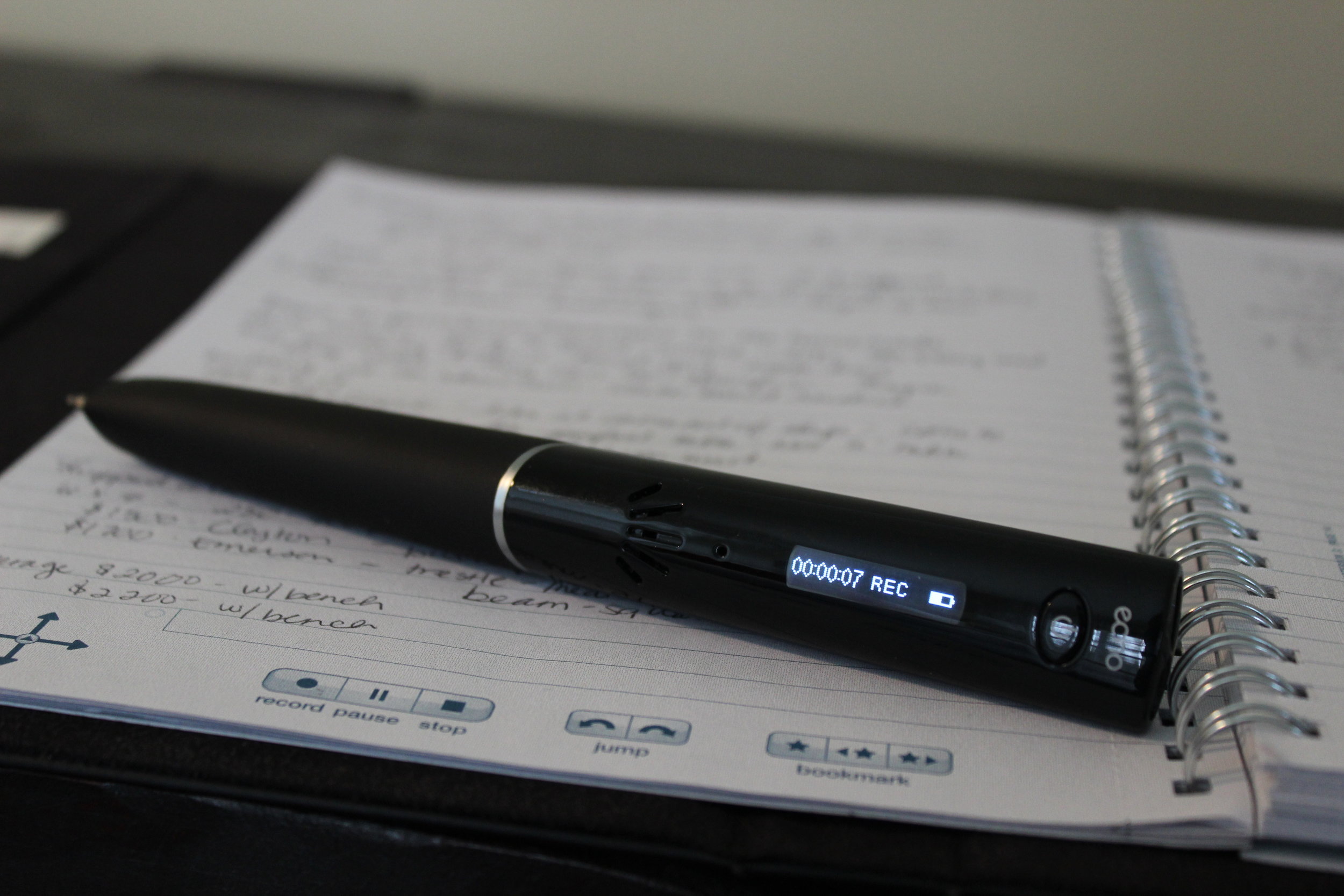 This is hands down the best investment I've made as a writer. When I was a teacher, we used it in the classroom to let kids take notes and record the lecture at the same time, that way, if they wanted to go back and listen to certain parts of the lesson, they could. I noticed pretty quickly that this is a tool that could be helpful since I spend hours interviewing different subjects in person or over the phone.
This is hands down the best investment I've made as a writer. When I was a teacher, we used it in the classroom to let kids take notes and record the lecture at the same time, that way, if they wanted to go back and listen to certain parts of the lesson, they could. I noticed pretty quickly that this is a tool that could be helpful since I spend hours interviewing different subjects in person or over the phone.
Here's how it works. When the pen is fully charged, you can press "record" on the magnetic paper (that comes with the pen). When you write something, it actually syncs the audio recording with whatever you wrote on the piece of paper. So no more transcribing hours of audio tape. You can put a star on the piece of paper when the subject you're interviewing says something you want to go back and listen to again. Then, weeks (even months) later, you can go back to your notebook, tap where that star is, and listen to that old recording.
It's pretty amazing. You can go watch how it works if you're interested. But seriously. It's been worth every single penny. Now, there's even a wifi pen, so you don't ever have to connect it to your computer for updates!
5. Camera to do some scouting — $500+
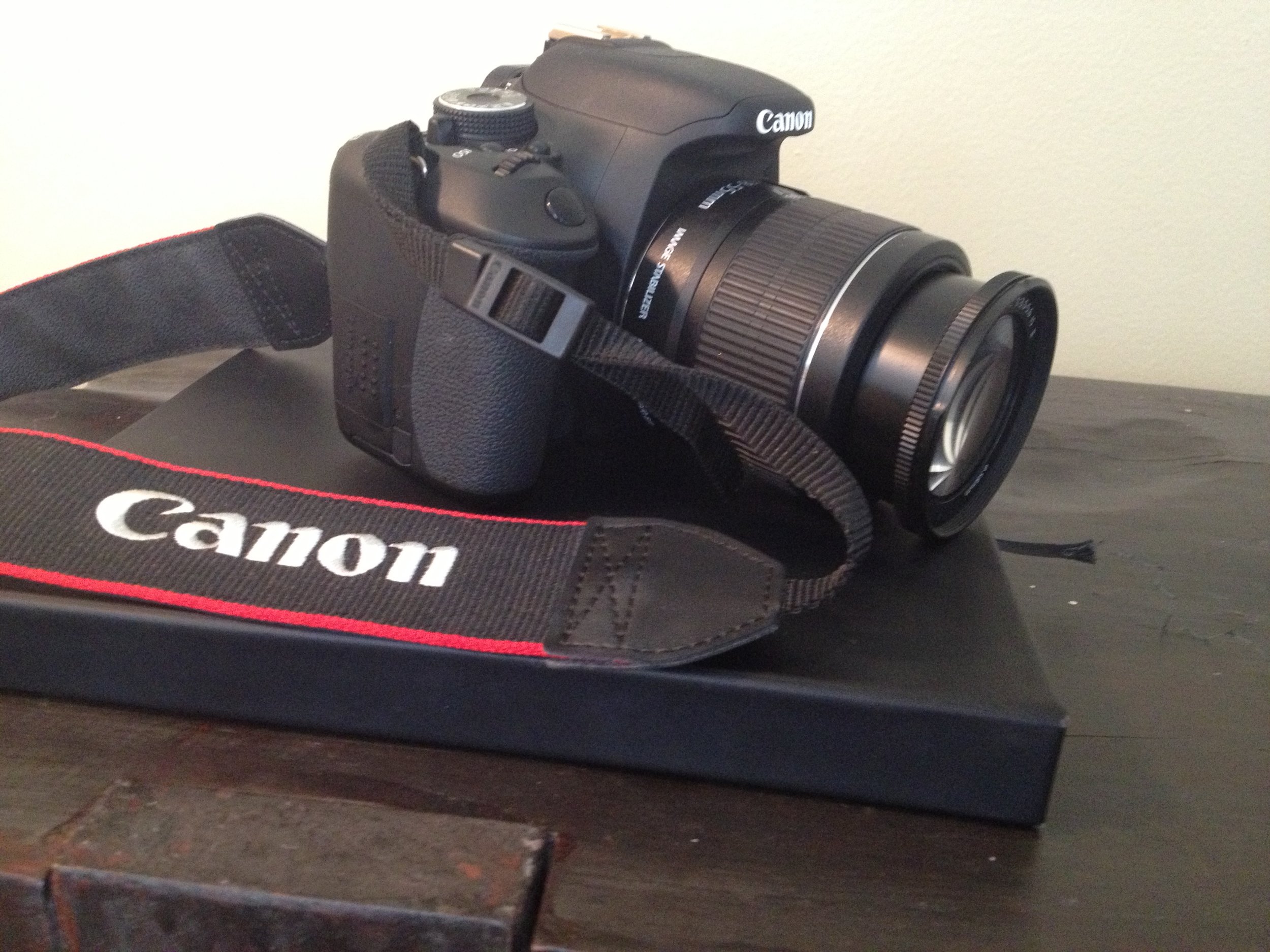
This has been my most recent (and least essential) piece of writer-equipment. Still, I believe it's been really helpful in my development as a writer. First, when I'm writing my blog—I don't have to go searching the web for hours to source pictures. That got old really fast. Also, now that I have photos, it adds a whole different dimension to my writing, and helps me tell stories visually and verbally. I'm still trying to get better at that. In the professional realm, it's great to scout pictures of what you're pitching to magazines/newspapers so they can get an idea of what you're talking about. After all, we're all pretty visual people these days—so seeing a picture to go along with your pitch can help an editor say "yes."
Here's the one I bought after much debate. I've heard B & H Photography can hook you up with some great used prices, too.
TOTAL EQUIPMENT COSTS: $2,295
Who knew being a freelance writer could cost so much?
--
So there you have it. My 5 essential writerly tools. What about you... other writers? What are your essentials in the workplace?